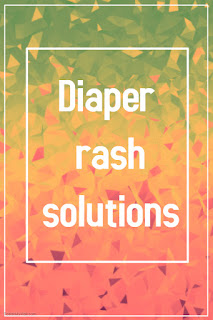It is seriously a hard one.
First...attempt to shelter in place (stay at home). Do you have food, water a generator (if needed for machines) and gas for generator?
Second...attempt to bug out (evacuate) by vehicle. You still need a 72 hour kit packed for everyone including your special needs child, but at least it will be easier than walking somewhere. Do you have a plugs in your car or a car inverter that can run your child's machines? Do you keep your tank half full at all times? (I don't...ha ha!).
Third...Bug out on foot (or by bike). This is the one I am going to focus on...
If you are LDS, your ward should have a written emergency plan (each ward is supposed to have one). Talk to your Bishop and counselors and Elders Quorum Pres and Home Teachers. Ask to be included specifically on the written emergency plan. Ask each of them that in case of emergency, as soon as they can get their families settled, to please send help. Tell them that you will need help getting all of the necessary medical equipment evacuated. If you are not LDS...talk to your neighbors.
We usually have about 1 day of supplies in her "Go bag" on her wheelchair with her at all times.
To build your 72 hour kit...just get started. Know that it won't be perfect to start...but isn't it better than what you currently have? Get a large Rubbermaid Bin (the heavier plastic kind). Take a few hours and go through your child's daily routine and your spare medical supplies. Pull out enough for 3 days (if you can spare it). On top of the bin tape a paper that lists things you would still like to add to the kit. Also tape a list of things you would grab at the time of evacuation (things you can't have packed up all of the time).
I keep this bin in my big van (the one with a lift that we use for Ellie) at all times.
I am currently revamping my 72 hour kit. I think I will put her things in either 1 large backpack or a few smaller backpacks and then put the backpack in the bin. The bin keeps kids from getting to it as easily and it getting stepped on but then you could pull the backpack out and wear it if needed.
I would really love to get a wheeled toolbox. They are heavy duty and can hold a lot of things. You can even lock them so your other kids don't get into them. Here is an example.
I am counting on my kids and hubby to wear their own backpack and then pull the toolbox. Or in a real bind I could push the wheelchair and pull the toolbox. (Come on...you know you've pushed the wheelchair and pulled a shopping cart before...ha ha!)
Some other ideas are a wheeled garden cart or a bike trailer. We have a special needs bike trailer that could carry Ellie and a large backpacking bag (but it is not the most supportive for Ellie). We also have a wheeled garden cart that Ellie can lay down on and we could squish a backpacking backpack on there too. The wheels are not huge...but I think it could carry a lot of stuff in a pinch. Ours is about 2' X 3'.
If the terrain is rough we also have a large wheeled jogging stroller that we would use instead of her wheelchair. Once again, it is not as supportive as the wheelchair...but for rough terrain it is the only way to go.
One last thought...Their stuff doesn't have to be in a backpack...a duffle bag or rolling suitcase might be easier. A duffle bag could hang over the back of their wheelchair or a rolling suitcase would serve the same purpose as the toolbox listed above.








